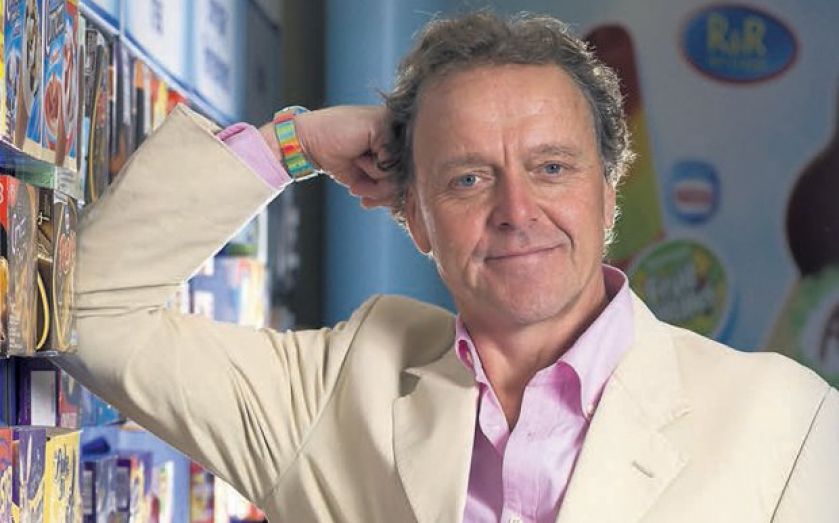R&R Ice Cream chief James Lambert talks dessert and bull semen

It’s often said that entrepreneurs should stick to what they know. Bill Gates knew software, hence Microsoft; Arianna Huffington knew media, hence The Huffington Post. But it’s not a piece of advice that James Lambert, the now-retired founder and former chief executive of Yorkshire-based R&R Ice Cream, paid any attention to.
Before starting the business in 1985, with just £40,000 and six employees, Lambert was working at a North Yorkshire cattle breeding company, selling bull semen to local farmers. Over the past 29 years, he’s built R&R into Europe’s single biggest ice cream producer by volume, with a turnover of around £750m last year, and a portfolio of brands including the Fab lolly, Skinny Cow ice cream and Kelly’s of Cornwall.
He was crowned EY’s UK Entrepreneur of the Year in 2013, and went on to represent Britain at EY’s annual World Entrepreneur of the Year ceremony in Monaco this summer (dubbed the “Oscars for entrepreneurs”). In a hotel lobby overlooking Monte Carlo harbour, he explained to me how a focus on scale and aggressive acquisitions helped the firm grow so fast.
COWS AND QUOTAS
“There was no particular plan for what’s happened since,” he says. “We just wanted to get good at making tubs of ice cream.” Lambert’s initial impetus for the business came from the imposition of EU milk quotas on dairy farmers. With output capped, demand for cattle ebbed, leading local farmers and semen salesmen like Lambert to start thinking about diversification. “It was suggested that milk being made into ice cream would be exempt from quotas, so we bought some kit and started making tubs.”
This canny way of getting around quotas didn’t quite work out – ice cream wasn’t exempt after all – but Lambert and his business partner had identified a clear opportunity. By focusing on two-litre tubs of “good quality, good value ice cream,” they were able to get the supermarkets on board, guaranteeing a cash flow that could be used to expand further.
Within roughly six years, he says, R&R was providing about half of the two-litre tubs in the UK. Its scale allowed it to undercut others in cost – “a lot of the smaller, family or regional businesses either collapsed or sold to us,” Lambert says. “And then we repeated the same trick with lollies.”
THE UK AND ENTREPRENEURSHIP
Leeds-based lollipop maker Treats was one of a string of bigger deals (technically a “reverse takeover”) that eventually saw R&R manufacturing and selling Nestle, Cadbury and many other big brand ice creams and lollies in the UK and Europe. “Nestle wasn’t making any money in ice cream in the UK, so I called them up one day.” Lambert asked whether he could manufacture for the bigger firm, but they said he should just buy the business instead.
No longer in charge of the company’s day-to-day operations, Lambert’s keen to share what he’s learnt as one of the UK’s most successful entrepreneurs. He took R&R public for a while, but found that the small-cap fund managers that formed the bulk of his shareholders weren’t on board with the company’s aggressive European expansion plans. “We were the fastest-growing British public food company for seven years, and we paid 17 times more than our float price to take us private again.”
And Lambert thinks that the forward-thinking mindset of startup founders is something that could be incorporated more into the UK’s infrastructure planning. “HS2 should be built now, right up and down the country, as well as high speed internet. I’m sorry if little-Englanders want to get in the way, but we all want the economic benefits.” The recent boom of people starting their own businesses is excellent news, he says. After all, “entrepreneurialism drives the economy – little else does.”